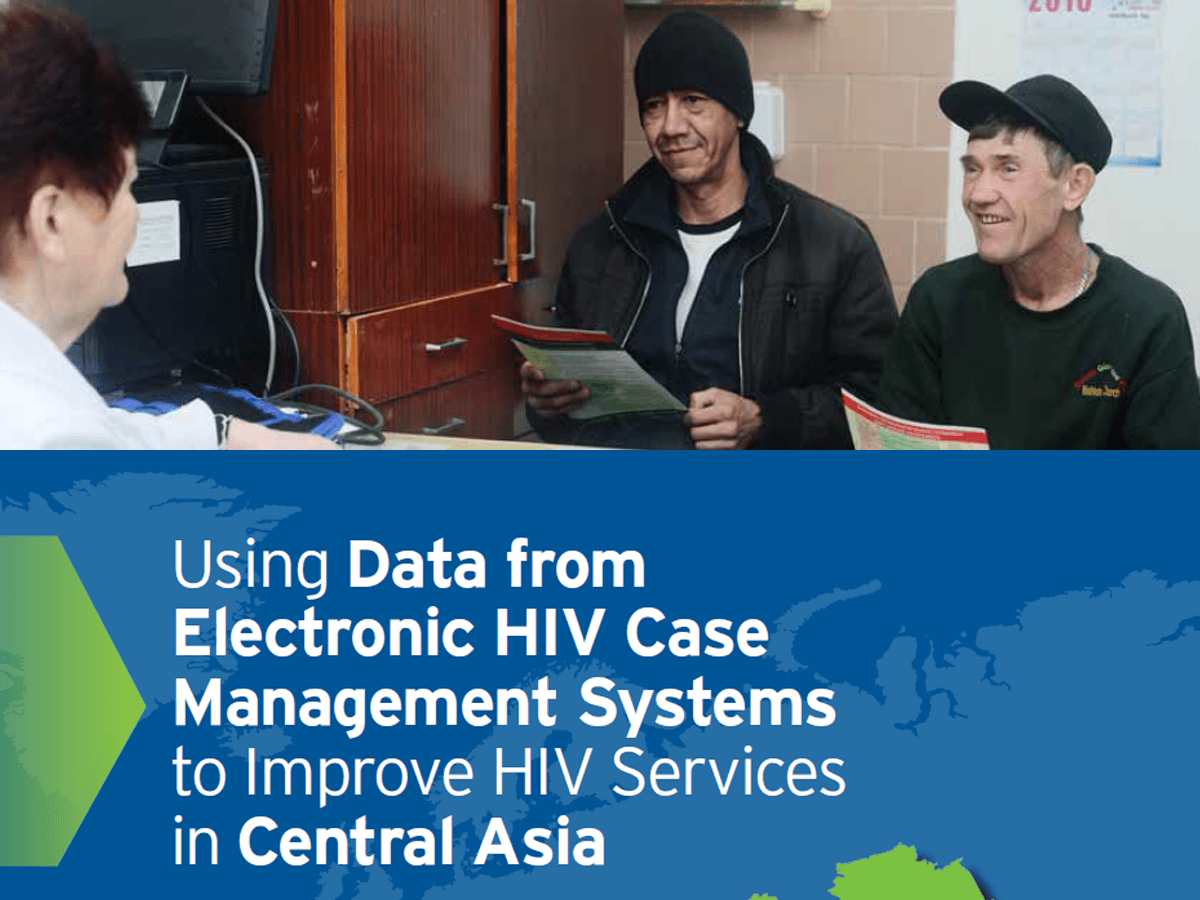Since 2010, with funding from PEPFAR through the Centers for Disease Control and Prevention (CDC), ICAP has supported the ministries of health of Kazakhstan, Kyrgyzstan, and Tajikistan to develop and support the rollout of a robust, state-of-the-art, confidential electronic HIV case management system (EHCMS). The system was designed to allow health workers to record and monitor individual HIV cases and to provide health managers with the data needed to assess aggregated HIV care and treatment indicators and compare them by region, age, sex, etc.
Building on the work begun with support from the World Bank-funded Central Asia AIDS Control Project in 2009, ICAP began managing the EHCMS rollout in 2011. With the ultimate goal of improving the quality of care and treatment programs available to people living with HIV in Kazakhstan, Kyrgyzstan, and Tajikistan, ICAP focused on creating a system capable of providing real-time, accurate, and easily accessible patient data to clinicians, as well as a system that would facilitate data-driven decision-making by health managers, policymakers, and other key stakeholders.
The EHCMS was rolled out in stages over the course of four years: first it was implemented at several pilot sites in Kazakhstan, and then it was adapted for use in Kyrgyzstan and Tajikistan and piloted at two sites in each country. Subsequently, the system was rolled out gradually across Kazakhstan, Kyrgyzstan, and Tajikistan in facilities run by the Republican AIDS Centers, provincial AIDS Centers, local AIDS Centers, and family medicine centers.
The governments of Kazakhstan and Kyrgyzstan called for a nationwide rollout of the EHCMS in 2012 and have since adopted the system as the primary means of national HIV surveillance. In Tajikistan, the EHCMS has been rolled out nationwide, but runs in parallel with the existing paper-based system.




